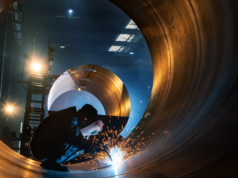Viva la revolucion : When Cuban President Fulgencio Batista abandoned the nation sixty years ago tomorrow, Fidel Castro, Che Guevara, and others emerged triumphant in the Cuban Revolution.
In this article for the American Institute for Economic Research, economic historian Vincent Geloso—with whom I worked on an unrelated research project that I summarise here—tries to measure Cuba’s economic performance and finds it.
..wanting, or at least inconsistent with romantic visions of revolutionaries liberating the people and working toward a Caribbean workers’ paradise.
I’d like to think about the broader context—socialism—in which Castro, Guevara, and their fellow revolutionaries worked.
The philosophers James Otteson and Jason Brennan finished the analysis of the socialist agenda a few years ago by deconstructing its moral ideal status.
They were immediately reacting to G.A. Cohen, a philosopher who produced a short book called Why Not Socialism?
in which he used a camping trip as a thought experiment to demonstrate socialism’s purported moral superiority (I reviewed the book for the Foundation for Economic Education shortly after it was published).
We wouldn’t enjoy it if all of our interactions on a camping trip were price-mediated and strictly self-interested; so, even if socialism is impossible, we should prefer it to capitalism.
The free market, according to Cohen, is “a casino from which it is difficult to escape.”
It’s an odd claim, given that the places people are attempting to flee—and finding difficult to flee—are places where free markets have been generally rejected.
Castro’s supporters will point to his accomplishments in providing health care and education, as well as increasing Cuban literacy rates.
Assume this is true for the sake of argument: even back then, many people were yearning to get out of his workers’ paradise. Not the other way around, the rickety boat traffic moved from Cuba to Miami.
Although Western elites lauded Castro’s system to the skies, those who had to live under his tyranny indicated a preference for free markets by their behaviour.
If we care about regular people’s liberty, we must take their actions seriously—and they are voting against socialism with their lives, riches, and sacred honour.
PROMOTED
The market, according to Cohen, is “a casino from which it is difficult to escape.”
I’ve visited Las Vegas on multiple occasions (and loved it). I’ve never been dragged into a high-limit slots area or shackled to a roulette wheel under duress.
Although casinos are notorious for being difficult to navigate, I’ve never been stopped at an exit and told to proceed to the nearest craps table.
“A difficult-to-escape casino” is a better description of the workers’ paradises from which people are urgently seeking to flee.
Cohen’s thought experiment on a “camping trip” is unintentionally disastrous.
As I’ve previously stated, the “camping excursions” that took place under true socialist governments resembled Alexandr Solzhenitsyn’s The Gulag Archipelago considerably more than a few days at the lake with friends and family.
It’s all too tempting to wax lyrical and idealistic about revolution—to take up the cause of the oppressed and picture a new world free of property and poverty.
For years, it has inspired thinkers and revolutionaries. If I strive hard enough, I can picture having no possessions.
It leads to perdition rather than bliss. What does singing an idealistic song have to do with “tearing the lid off hell and letting men see it,” I wonder?
What was your communist experience like if you didn’t get an answer?
Also Read:
- Francia James
- Viking Barbie
- Franceska Fournier
- Francia James
- Chelsea King – Biography, Career & Net Worth













































